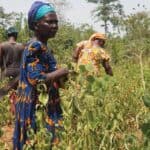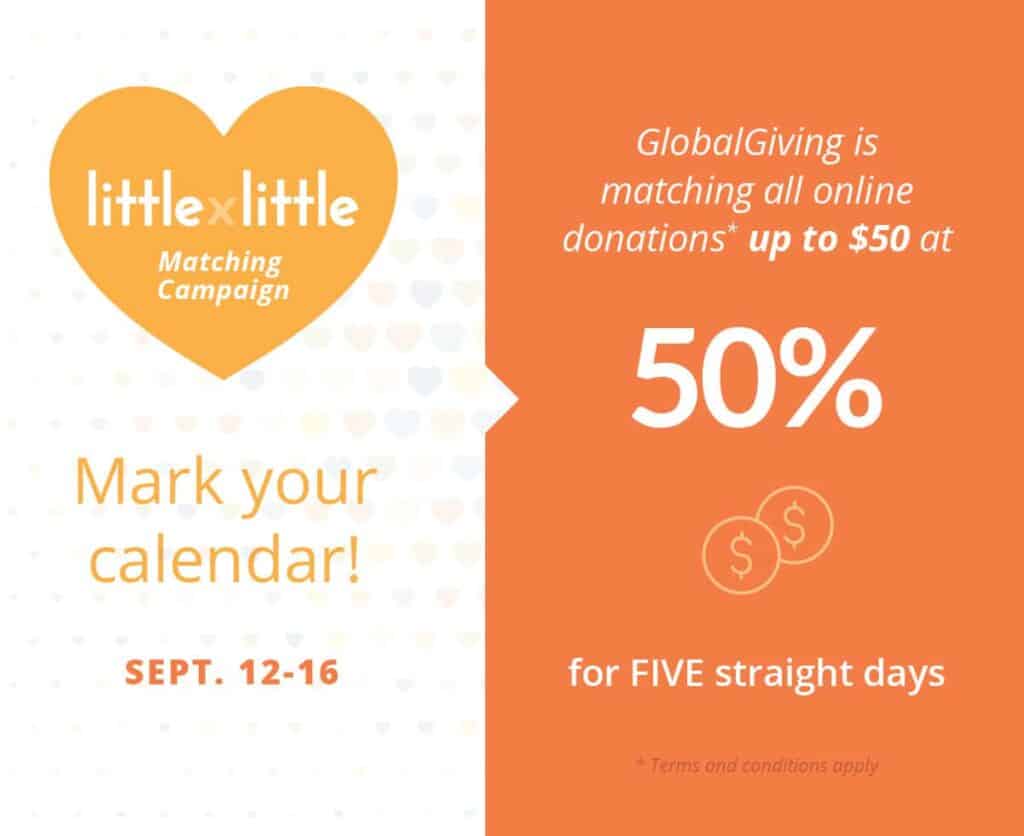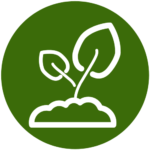
The Importance of Social Safety Nets During COVID-19
By Katie Seifert – Latin America Program Specialist

Water and Sanitation Committee member.
Clean and safe drinking water is more important than ever, especially during the COVID-19 global pandemic as articulated by this IFPRI article. Self-Help International has been working to provide safer drinking water to rural Nicaraguan communities by way of CTI-8 chlorinators, which add chlorination to existing water sources with chlorine tablets. The chlorine kills a lot of the waterborne bacteria that can cause acute diarrhea, significantly reducing the incidence of acute diarrheal disease so families can lead healthier, more productive lives.
Until 2019, Self-Help supplied sodium-based chlorine tablets to communities; however, in 2019 the Nicaraguan government required a switch from sodium hypochlorite tablets to calcium hypochlorite tablets. Unfortunately, sodium hypochlorite tablets are three times the cost of calcium hypochlorite tablets, and as Self-Help began making the switch in chlorine, communities served by Self-Help expressed that the cost was a barrier to chlorination.
Communities’ cries for more inexpensive chlorine were exacerbated by the global pandemic, especially for those communities that wanted to acquire more chlorine tablets in advance to stock up in case of emergencies. Program Officer Orlando Montiel reported that approximately 50% of the consistently chlorinating communities reported having trouble affording the new tablets. Whereas sodium-based tablets cost 300 cordobas ($8.61 USD) per month per community, the new calcium-based tablets would cost a community 1000 cordobas ($28.71 USD) per month – more than triple the former cost.
Recognizing that social safety nets are critical more than ever during the ever-present global pandemic, Self-Help agreed to implement a 20% subsidy for chlorine tablets for all communities requesting chlorine.
The decision was made for two key reasons: first, because as Orlando explains, the local Water and Sanitation Committees (CAPS) that manage the chlorinators are “passers-by in their management positions and this happens a lot in rural communities. The finances of the [water committees] depend on the users – that is, on the payment made by people living in the community for the water service received. This payment can vary greatly and become delinquent. If the service level indicators of the water are deficient, the user population complains and refuses to pay for the received water service.”
He adds, “If the rate (cost) for water service is high in relation to the economic conditions of the community’s population, the CAPS will probably have trouble raising enough money to manage and maintain the aqueduct. The default gradually increases until it becomes unable to maintain the aqueduct and therefore its collapse.”
It is important to Self-Help that the communities continue chlorinating their water especially during a crisis, so the subsidy was offered as a way to show communities the importance of continued chlorination.

Water and Sanitation Committee members.
The second reason for offering the subsidy was simply to help communities offset the cost of chlorination. Of the 99 chlorinators installed by Self-Help and serving communities (as opposed to businesses or other entities), the number of households per community ranges from 17 to 1491. In total, those 99 chlorinators serve 14,488 households, averaging 146 households, with a median of 92 households. Using the median number of 92 families, the former tablets’ cost of 300 cordobas per month is 3.26 cordobas per family per month, or about US $0.10, which does only increase to about US 0.32$ per month (1000 cordobas per month is 10.9 cordobas per family per month). While this is a large percentage increase, a 22-cents-per-month cost may seem insignificant.
However, it’s important to note that, as Orlando explained, “We must consider that families will not only pay for the chlorinator and the payment of chlorine tablets every month, but they must also pay for the operation, maintenance and administration of the community water system.”
“This includes the following: stationery, receipt book, office supplies, etc.; payment for electric energy, if the pipeline is a MABE (well with electric pumping); the plumber’s salary; cleaning materials and supplies; tools; the purchase of pipes and pipe repairs; gasoline if they use a power plant to pump the water to the battery; payment of cleaning of catchments; purchase of chlorine; purchase or repair of a submersible pump; payment of transportation; and above all, create an available fund for the replacement of the hydraulic infrastructure when its operational life is over. In many rural Nicaraguan pipelines, its operational useful life has ended,” Orlando said.
Ultimately, both Self-Help and communities are happy for the 20% chlorine tablet subsidy being offered during the pandemic. Not only is it saving the average community nearly $6 USD per month, it is, more importantly, a clear message to communities that clean water is critical and that Self-Help will support communities in whatever way possible to ensure they continue chlorinating their water.

 Previous Post
Previous Post Next Post
Next Post


